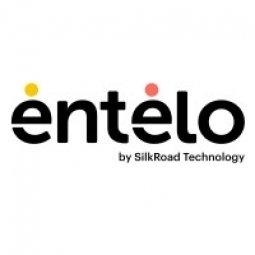Download PDF
Zenefits Streamlines Recruitment Process with Entelo
Technology Category
- Analytics & Modeling - Predictive Analytics
- Sensors - GPS
Use Cases
- Supply Chain Visibility
- Time Sensitive Networking
The Challenge
Zenefits, a rapidly growing company, was facing a significant challenge in managing the high volume of job applicants. The company had scaled its team from hundreds to thousands of employees in a matter of months, attracting a steady stream of applicants. The talent acquisition team was spending a significant amount of time manually reviewing resumes, struggling to keep up with the volume. The competitive marketplace necessitated a quick hiring process, and the lack of visibility into candidates from across their talent pools was a concern. The team was also worried about losing potential candidates who applied for one position but were better suited for another.
About The Customer
Zenefits is a rapidly growing company that has scaled its team from hundreds to thousands of employees in a matter of months. The company operates in a competitive marketplace where speed-to-hire is crucial. The talent acquisition team at Zenefits was spending a significant amount of time manually reviewing a high volume of resumes. They needed a solution that could help them manage the high volume of applicants, speed up the hiring process, and provide visibility into candidates from across their talent pools.
The Solution
Zenefits adopted Entelo's software to streamline their recruitment process. The software uses predictive analytics to rank candidates instantaneously, saving the team a significant amount of time by eliminating unqualified applicants in minutes instead of hours. The software allows the team to set evaluation criteria such as a candidate’s skills, location, and educational background. Candidates who don’t meet the requirements for a particular job can be automatically demoted within Entelo, saving further time. Entelo also provides alerts on which candidates fit the criteria, enabling quick action. Additionally, Entelo suggests candidates from one job requisition who may be a great fit for another job requisition, ensuring no potential candidate falls through the cracks.
Operational Impact
Quantitative Benefit
Related Case Studies.

Case Study
Remote Temperature Monitoring of Perishable Goods Saves Money
RMONI was facing temperature monitoring challenges in a cold chain business. A cold chain must be established and maintained to ensure goods have been properly refrigerated during every step of the process, making temperature monitoring a critical business function. Manual registration practice can be very costly, labor intensive and prone to mistakes.

Case Study
Retail Uses RFID to Enable Cold Chain Monitoring
Like most grocery retailers, Hy-Vee is faced with the challenge of providing the highest quality products to its shoppers. Shoppers want the longest possible shelf life from perishable products and expect a consistent product experience each time they shop. Controlling the quality of products sold leads to shopper loyalty, which is of paramount importance to the success of Hy-Vee. Before products arrive in stores, Hy-Vee's distribution centers (DCs) handle items including dairy products, fresh meats, seafood, deli items, produce and frozen goods, all of which have different temperature needs and sensitivities. During transit from suppliers to DCs, Hy-Vee has limited visibility and temperature management abilities due to large amount of supplier managed transportation. For instance, during a week-long transit, a supplier's carrier equipment may malfunction, causing an item to thaw and then refreeze once repairs are made. Hy-Vee sought help from TempTRIP, an RFID solution provider that focuses on shipping, storage, receiving, and temperature control. TempTRIP's EPC RFID tags use Impinj chips to monitor and report temperature readings throughout the shipping and receiving process. The tags can also be re-configured and re-used, a unique feature within the current market of temperature monitoring devices.

Case Study
Covisint Improves Mitsubishi's Collaboration With Its Supply Chain
Mitsubishi sought to improve supplier relationships on a global basis and to offer an easy-to-use solution to interact with them. In August 2004, Mitsubishi selected Covisint’s platform to help improve sharing of information and collaborative business processes with its global suppliers. Covisint enabled Mitsubishi to provide its suppliers with immediate access to information and applications to obtain more collaborative working relationships








